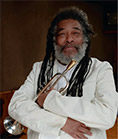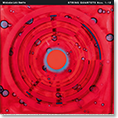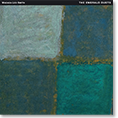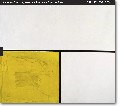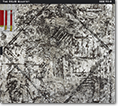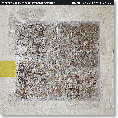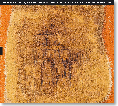THE MUSIC - CONCLUSIONS
This quartet with Iro, Uffe and Reiska has provided me with an excellent opportunity to reflect on my five decades of performing improvised music. In a way, I see this recording as a summation of some of the key lessons learned and conclusions drawn both on a personal and on an artistic level. To me, the music on this recording also represents evidence of the redeeming power of art. It shows how a lifetime of experiences, even painful and negative ones, can be turned into a positive force for both the performers and the listeners. We cannot live on bread alone: we also need some other form of sustenance in our lives.
I feel that, both in my personal life and as a musician, I have often overcome the odds. Even some of the unlikeliest of my dreams and goals have come to pass, and music has always been the force to carry me through. Frequently, this has happened with the help of others, including my many collaborators over the years, with the members of this quartet being important among them. The more I look back on my life as a musician, the more strongly I feel that, through the power of art, the one who needed healing can become a healer himself.
Helsinki, December 1, 2009
Juhani Aaltonen
Shimmer of Fallen Stars (Iro Haarla) is inspired by Finnish nature as are many other compositions of Iro Haarla. Haarla says that the composition has its origins in a January afternoon when, after a long period of darkness, a fragile shimmer of light appeared in the horizon. This made Haarla think of the fallen stars that leave their mark in the universe just like our deeds - done or undone - do.
Ronda (Juhani Aaltonen) is a composition that, according to Juhani Aaltonen, largely accidentally came to use the Phrygian scale which immediately brings to mind Spain and even distantly echoes Miles Davis´ Sketches of Spain. Although this association was unintended, Aaltonen decided to name the composition after Ronda, the beautiful mountain town in Andalusia that is famous for its old bull-fighting ring, one of Ernest Hemingway´s favorites.
Rautapallo (Ulf Krokfors) means "iron ball", a title that was intended ironically by its composer Ulf Krokfors. Krokfors says that the flute melody of the composition is intended to remind of the free glide of a bird while the more grounded sound of the bass represents a force pulling it down. This serves as a metaphor of our desire for freedom, which is always limited by the bounds of reality.
Blessing (Iro Haarla) seeks to create tension through the interaction between the piano and the bass, for which Iro Haarla originally wrote this composition, and the tenor saxophone. In its freely improvised solo, the tenor saxophone embellishes and colors the simple, choral-like theme, creating a contrast by avoiding the melody while flirting with the boundaries of the underlying harmony.
Good Old Times (Juhani Aaltonen) was, like many other compositions by Juhani Aaltonen, born out of a live performance. In the middle of a performance by the Juhani Aaltonen Trio, the group started to play with a more traditional sense of time that gave birth to the simple theme through Aaltonen´s improvisation on top of it. This theme and the more traditional accompaniment reminded Aaltonen of musicians exchanging stories and reminiscing the "good, old times". Hence, the title.
Agape (Iro Haarla) is ancient Greek and was used by the early Christians to mean selfless love or God´s love that should be reciprocated. Iro Haarla chose to use this word as a title of this intense composition because of her belief that the creation of music is an expression of gratitude and respect for a higher power and provides us with the ability to share and receive that gratitude.
Never Ending Sea (Ulf Krokfors) is another title that connotes a natural phenomenon. Ulf Krokfors says that the mental image that he had in mind when composing this tune was that of an endless sea with waves first lifting you gently and then the wind carrying you towards the shore with an increasing intensity. When reaching the shore, the fair wind in your back still carries you forward.
Consolation (Juhani Aaltonen) is a theme by Juhani Aaltonen that first grew out of a piano improvisation by Aaltonen, a form of practice that he has become increasingly fond of in recent years, and was developed further in live performances by the Juhani Aaltonen Trio and Quartet. Aaltonen believes that the underlying feeling of sadness or longing of the composition is ideally suited for this largely improvised tune.
Reflections (Juhani Aaltonen) is a composition based on Aaltonen´s flute improvisation in a duo with guitarist Ilkka Niemeläinen that used old Gregorian church music as its reference point. Aaltonen has described this tune as being more of a "state of mind" than simply a composition: once the musicians settle in that state of mind, the music flows naturally. A version of this composition was included on the first recording by the Juhani Aaltonen Trio (Mother Tongue, TUM CD 002) and on the roughly contemporaneous recording by the Juhani Aaltonen, Reggie Workman and Andrew Cyrille Trio (Reflections, TUM CD 007). Aaltonen has also recorded two solo versions of the composition.
Ice Breaking (Iro Haarla) is another composition by Iro Haarla inspired by the nature. Haarla felt that the idea of water flowing and ice breaking with the first arrival of spring created a rhythmically interesting - polyrhythm at its best - metaphor for the unraveling of repressed emotions, a period of transition leading to a tranquil beginning of a new, more hopeful phase.

